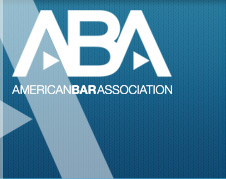Hate Speech
 “Hate speech is not protected by the First Amendment.” – Portland Mayor Ted Wheeler after two men were killed in the spring of 2017 when they confronted another individual who was uttering anti-Muslim slurs. But that analysis is wrong.
“Hate speech is not protected by the First Amendment.” – Portland Mayor Ted Wheeler after two men were killed in the spring of 2017 when they confronted another individual who was uttering anti-Muslim slurs. But that analysis is wrong.
Recent demonstrations of white supremacists in Charlottesville, Va., have raised questions about whether hateful speech and racist comments are protected by the First Amendment.
The U.S Supreme Court has made it clear that governments may not restrict speech expressing ideas that offend, most recently in a unanimous 8-0 ruling on June 19, 2017, in Matal v. Tam, known as the “Slants” case.
On April 20, former Vermont governor and ex-Democratic National Committee chair Howard Dean tweeted a message like Mayor Wheeler’s. Referring to past comments by conservative commentator Ann Coulter, he tweeted: “Hate speech is not protected by the First Amendment.” But in Matal v. Tam, which protected the trademark of names even though they might offend, the Supreme Court said, “Speech that demeans on the basis of race, ethnicity, gender, religion, age, disability or any other similar ground is hateful; but the proudest boast of our free speech jurisprudence is that we protect the freedom to express ‘the thought that we hate.’”
In general, courts have found there is no First Amendment protection to speak fighting words — those words without social value, directed to a specific individual, which would provoke a reasonable member of the group about whom the words are spoken. But experts say merely offensive or bigoted speech does not rise to that level. Determining when individual conduct crosses the “offends” line is a legal question that requires examination on a case-by-case basis.
Posted 8/17/2017
Other Fact-Checked Subjects:
- Hate Speech
- Flag Burning
- Pardons
- Affirmative Action
- Free Speech
- Ninth Circuit
- Forced Evacuation
- Executive Orders
- National Anthem Controversy
- Gun Laws
- Broadcast Licenses
- Revoking Visas
- Non-Citizen Terrorist Cases
- Religious Displays
- Congressional Seating
- Sexual Harassment
- Revoking Citizenship
- Influencing U.S. Elections
- Legal View of Treason
- Chain Migration
- Guns and Courts
- Students' Right to Protest
- Attorney-Client Privilege
- Recusal
- The President and the Law
- Immigrant Rights
- Revoking Security Clearances
- Confidentiality Agreements
- Resigned or Fired
- Deadly Force
- Birthright Citizenship
- Press Credentials
- Troops at the Border
- Election Re-Vote
- Emergency Powers
- Immigration Law
- Contempt of Congress
- Boycotting 2020 Census
- Electoral College
- Impeachment
- Separation of Powers
- Equal Rights Amendment
- Whistleblower Protection
- Pandemic Authority
- State Powers
- Employer Limits
- Police Immunity
- Federal Forces
- Hatch Act
- Attorney General Authority
- Frivolous Lawsuits
- Social Media and the First Amendment
- D.C. Statehood
- Executive Privilege
- Russian Sanctions
- Law of Genocide
- Stare Decisis
- Declassified




